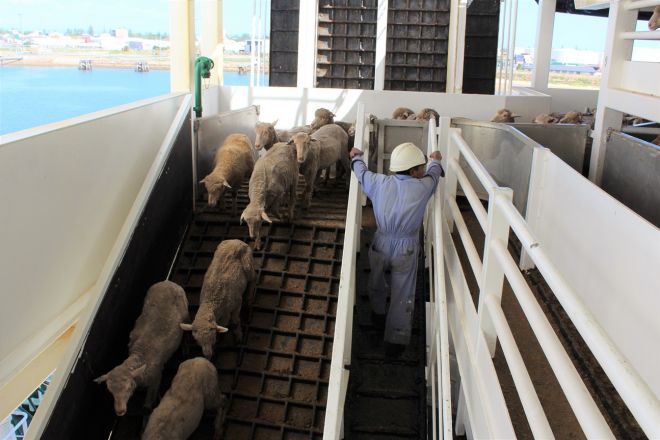News

ASEL reflects industry appetite for reform
THE Australian Livestock Exporters’ Council has welcomed today’s release of the Review of the Australian Standards for the Export of Livestock (ASEL) final report for sea transport.
The report, along with the Department of Agriculture and Water Resources’ response, provides some certainty for livestock exporters with regard to how the reforms will impact the industry in practical terms when the standards are implemented in the coming months.
ALEC CEO Mark Harvey-Sutton said the new standards would cement Australia’s standing as the world’s leading livestock exporter and its unmatched commitment to ongoing improvement in animal welfare.
“Overall, the ASEL changes are positive and, in many respects, reflect ALEC’s feedback arising from the draft recommendations,” Mr Harvey-Sutton said.
“ALEC had been calling for transport standards to be updated for many years. It was a view shared by the previous Labor Government, which commenced the ASEL review process before losing power in 2013, so today’s announcement has been a long time coming.”
ALEC has also welcomed Ross Carter’s appointment as Interim Inspector-General of Live Animal Exports.
“ALEC led industry calls for an Inspector General to help to provide independent oversight of the regulator and work with exporters to improve animal welfare outcomes,” Mr Harvey Sutton said.
“Our members formally endorsed the establishment of an Inspector General in April last year. It was subsequently a key recommendation of the review into the regulatory conducted by Philip Moss, which was published in October, so we very much welcome Mr Carter’s commencement in the new role this week.”
The ASEL review has recommended an allometric approach to calculating stocking densities, requiring more space for livestock, and the application of a Heat Stress Risk Assessment to all voyages that cross the equator.
Mr Harvey-Sutton said exporters would now take time to assess the changes and consider how the new standards will impact industry supply chains and markets.
“With that in mind, confirmation today that the regulator will enforce a three-month hiatus in sheep shipments to the Middle East during the Northern Hemisphere summer months further demonstrates that ALEC is proactively driving reform, because it is a policy that exporters initiated last year,” he said.
The industry-led moratorium, which will now be enforced by the regulator, will take effect from June 1, 2019.
“We’re determined to achieve ongoing improvements, built on the genuine care producers, exporters and importers have for the animals in our supply chains,” Mr Harvey-Sutton said.
“Exporters are showing a willingness to drive positive change to secure a sustainable future for the livestock export industry and to ensure producers who rely on the trade have certainty and confidence for the future.”
Enquiries: Tom Dawkins via 0476 844 886 or tom@rmac.com.au


